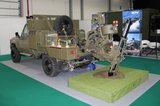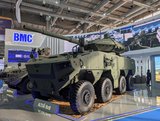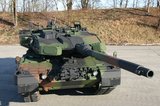Rheinmetall, Netherlands extend ammunition deal
Rheinmetall has announced that it has signed a contract to extend an existing agreement with the Dutch armed forces for the supply of various ammunition types. The new 7-year agreement, signed in December, will run to the end of 2019.
The decision will extend the current agreement, which dates from 2007, for the mutual benefit of both parties. According to Rheinmetall, the decision ‘reflects the longstanding mutual trust that characterises relations between Rheinmetall and the Dutch armed forces’. At the same time, ‘it sets the stage for intensified long-term cooperation that will benefit both sides’.
Rheinmetall supplies a variety of ammunition types in many different calibres to the Dutch Army, including service and practice versions as well as propelling technology. The partnership agreement provides the Dutch military with a reliable, long-term source of supply for ammunition, as well as a streamlined procurement process.
More from Land Warfare
-
![World Defense Show 2026: Large vehicles and counter-drone systems take the limelight]()
World Defense Show 2026: Large vehicles and counter-drone systems take the limelight
Visitors who attended the first World Defense Show four years ago continue to speak of the difficulties they faced with poor facilities and power problems. This year’s event emphasised its status as one of the major defence expositions and as a place where regional players and those less welcome at other shows could take centre stage.
-
![MKJ Warrior Series — The Nett Warrior Qualified Connector for Today’s Soldier Systems]()
MKJ Warrior Series — The Nett Warrior Qualified Connector for Today’s Soldier Systems
ITT Cannon’s MKJ Warrior connectors are designed for the harshest environments, delivering mission critical comms, navigation and USB data/power.
-
![Active vehicle protection comes to the forefront as Trophy and Iron Fist secure contracts]()
Active vehicle protection comes to the forefront as Trophy and Iron Fist secure contracts
Experience on the battlefield is accelerating the adoption of active protection systems as technologies continue to evolve to reflect shifting global defence needs.
-
![World Defense Show 2026: Hanwha increases Middle East presence and reveals Tigon 6x6 sale]()
World Defense Show 2026: Hanwha increases Middle East presence and reveals Tigon 6x6 sale
Shephard sat down with Hanwha Middle East and Africa president Sung Il at World Defense Show 2026 to hear about the company’s plans for the region and how it plans to use local industry success to win deals.























